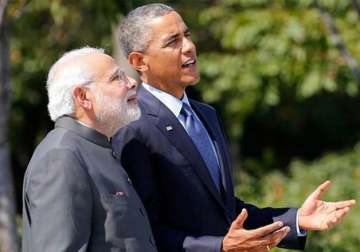New Delhi: The nuclear "breakthrough understanding" between President Barack Obama and Prime Minister Narendra Modi could be finalised this year.
The Jan 25 announcement by Obama and Modi followed six weeks of intensive talks, but few details were released beyond a framework based on India's acceptance of the principle that plant operators should bear primary liability in the event of a nuclear disaster.
Significant work remains on the fine print of a deal aimed at unlocking projects worth tens of billions of dollars that have been stuck the drawing board for years. India wants to nearly treble its installed nuclear capacity, which would make it the world's second biggest market after China.
As per Syed Akbaruddin, Chief spokesman at India's Ministry of External Affairs, "There are no policy hurdles left". "We are committed to moving ahead on all implementation issues at an early date", added Akbaruddin.
India and the United States signed a landmark agreement to cooperate on nuclear power back in 2008. Yet an expected bonanza never materialised because India later passed a law that would expose reactor makers to liability if there was an accident.
The U.S. official said Washington expects the Indians to ratify with the IAEA in the near future, along with documentation "stating what their law intends" on the issue of liability, which should offer further reassurance to U.S. firms.
Westinghouse has been granted land in Modi's home state of Gujarat to build six reactors, while GE Hitachi Nuclear Energy is eyeing a similar project in Andhra Pradesh. The liability roadblock has prevented commercial talks from starting on the projects, with a combined capacity of 10,000 megawatts.
India has 21 nuclear reactors with an installed capacity of 21,300 MW. It plans to launch construction of 40,000 MW of capacity in the next decade.
India will launch a campaign to explain the agreement to the public. There will then be a 'seminar', possibly in March.
Although India has not committed to a deadline on ratifying the IAEA's Convention on Supplementary Compensation, it is expected by the U.S. side to do so at some point in the near future.
Latest India News
